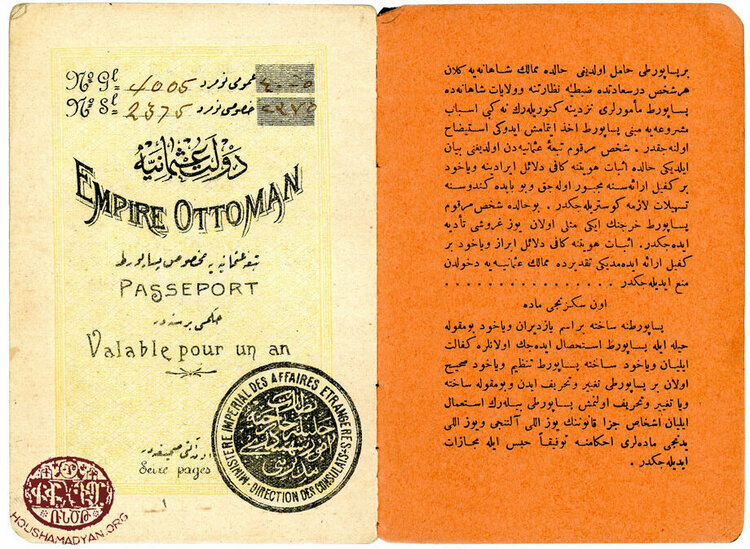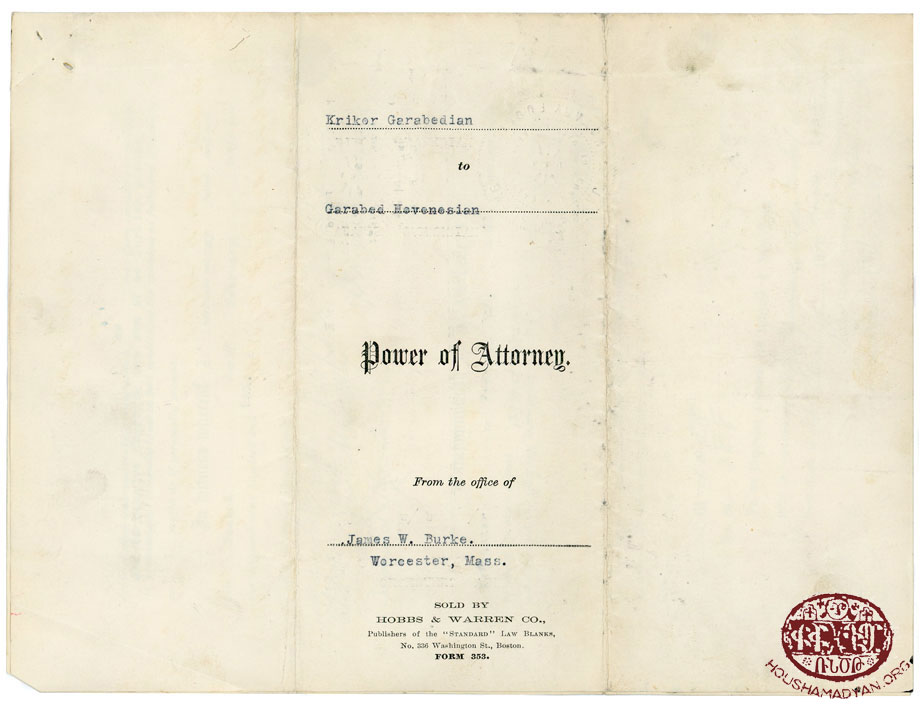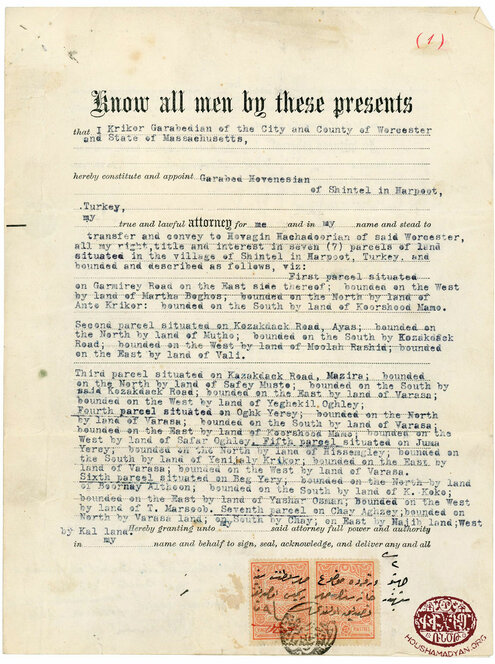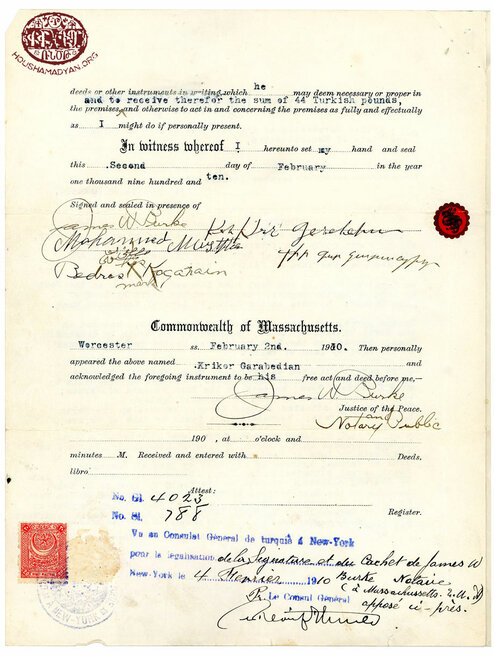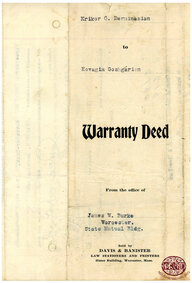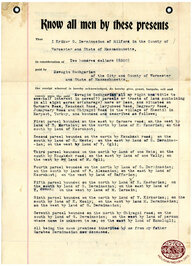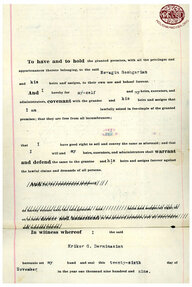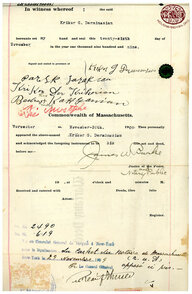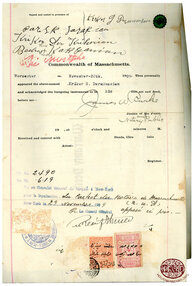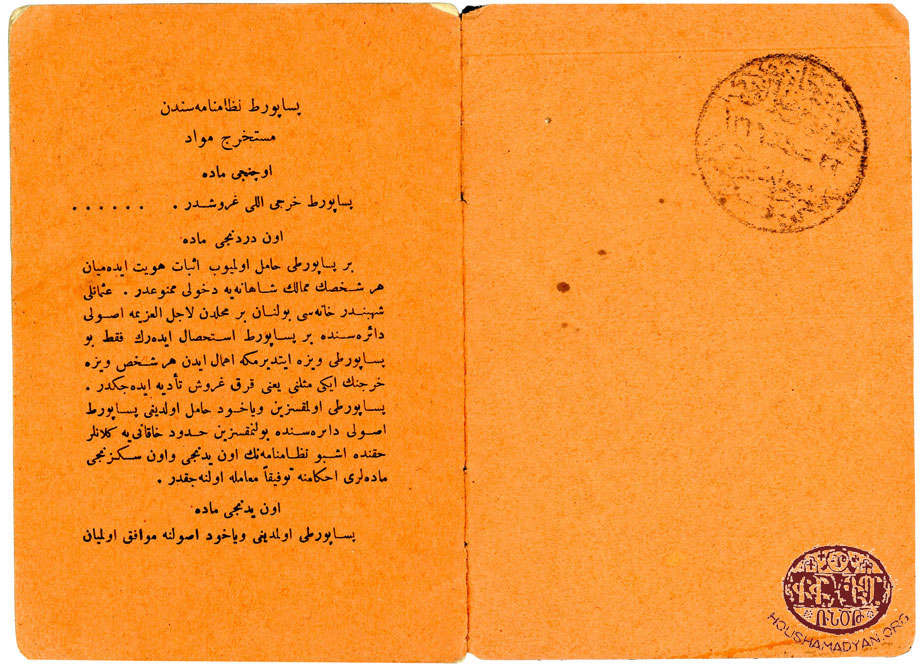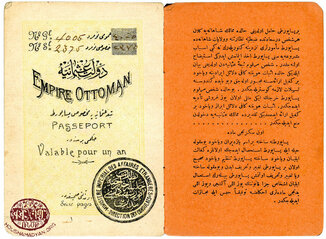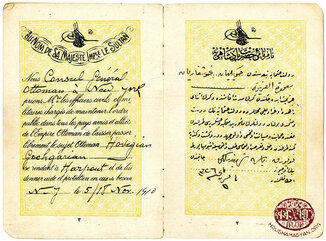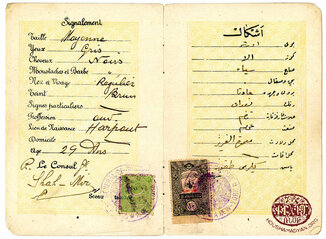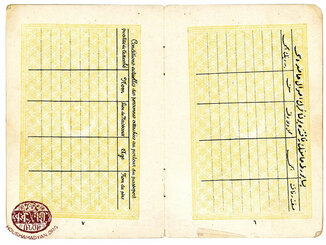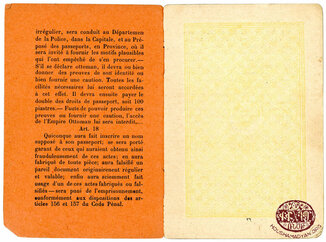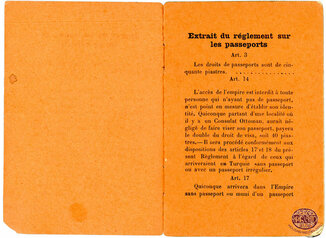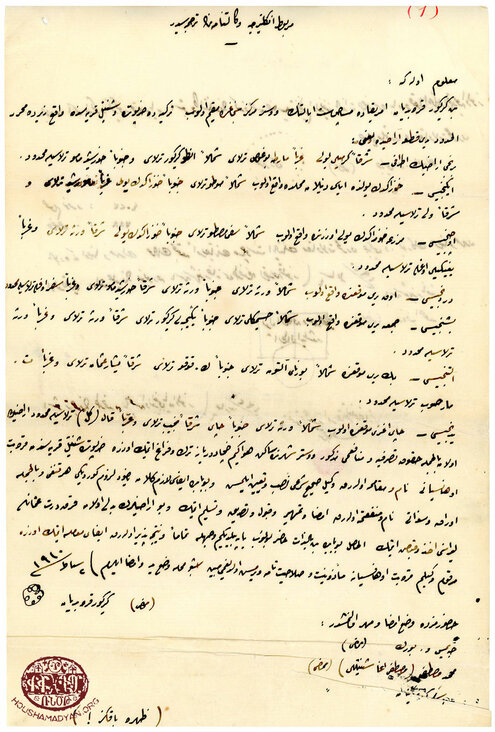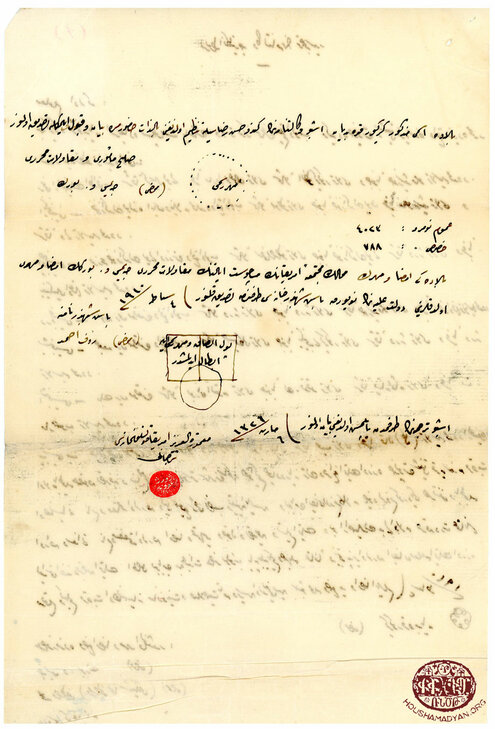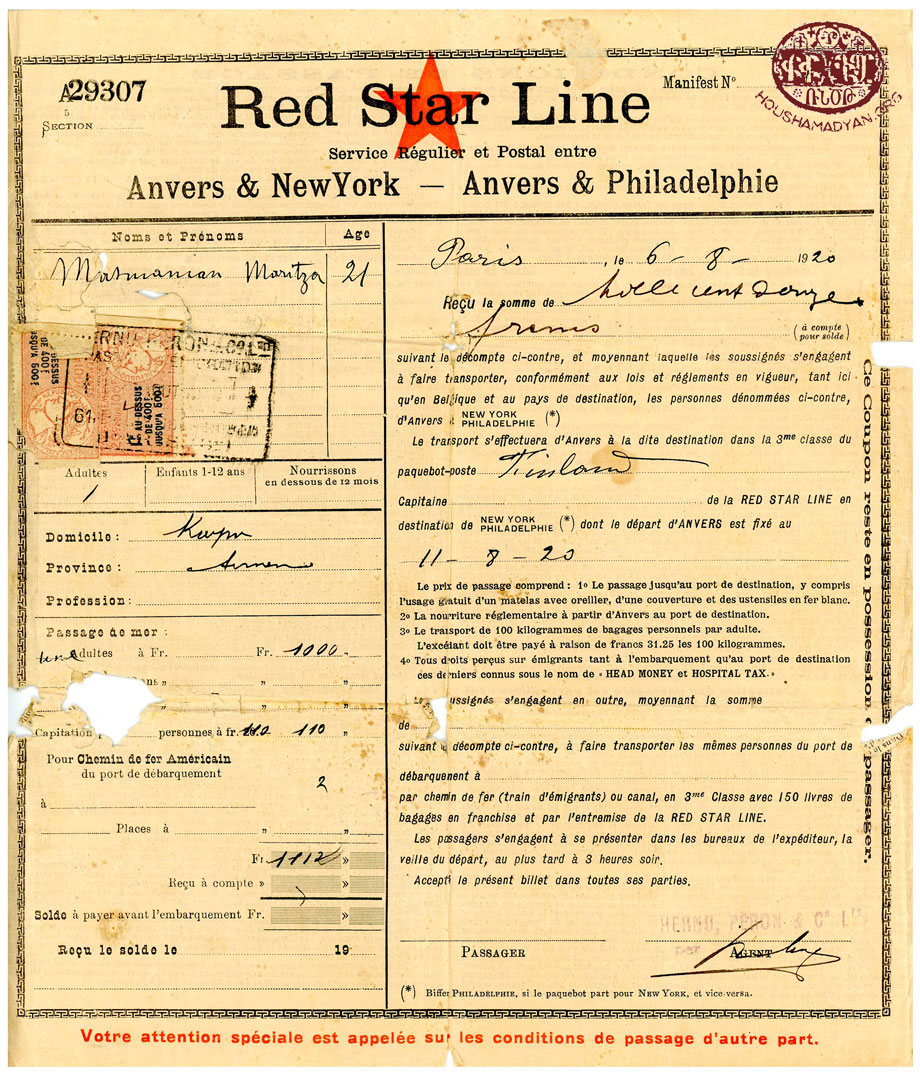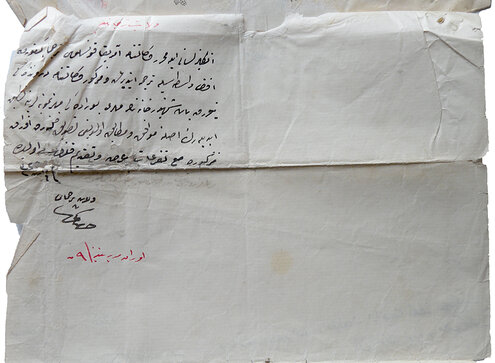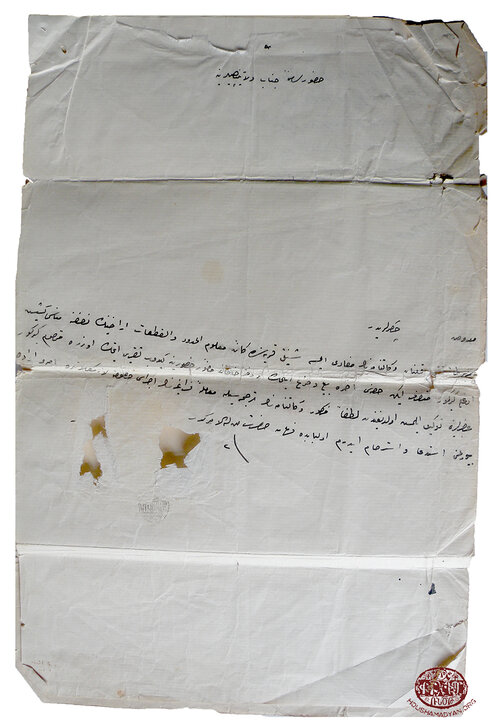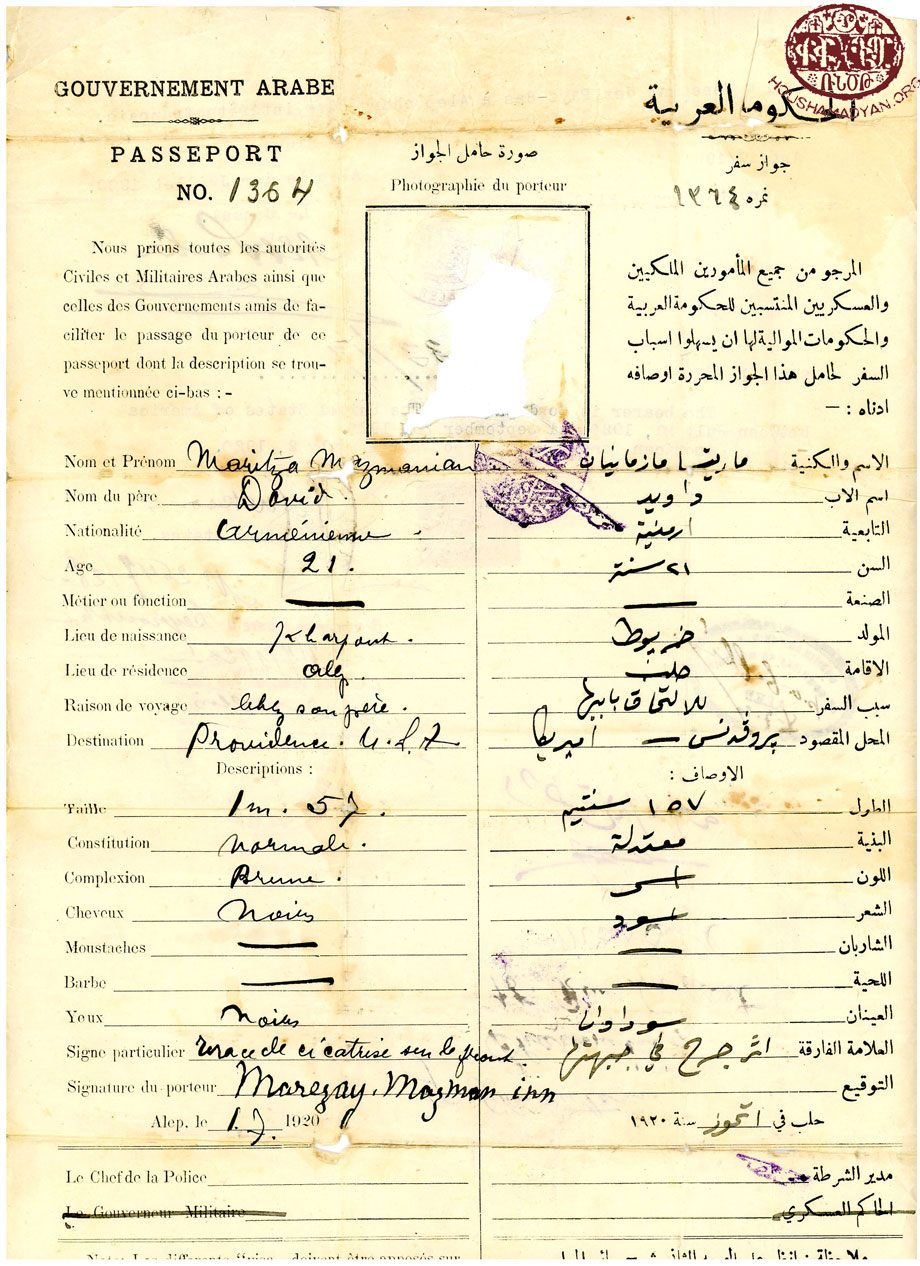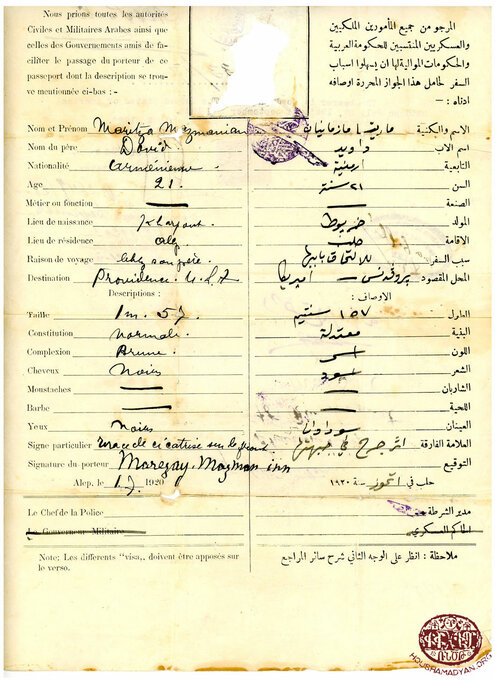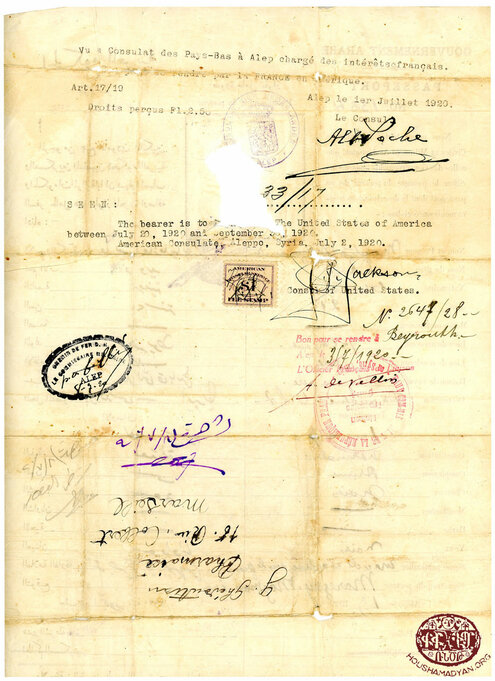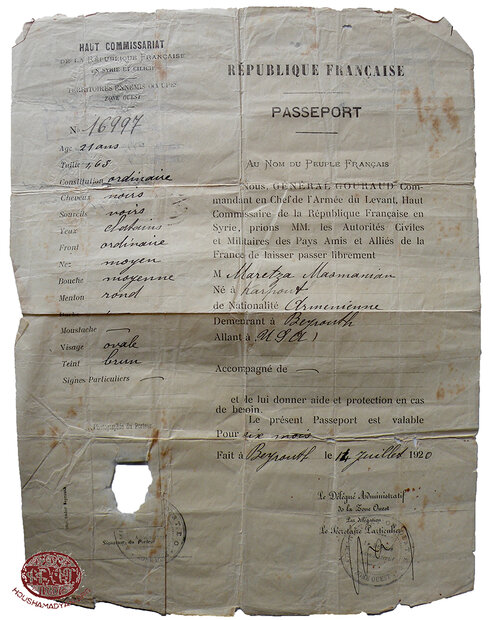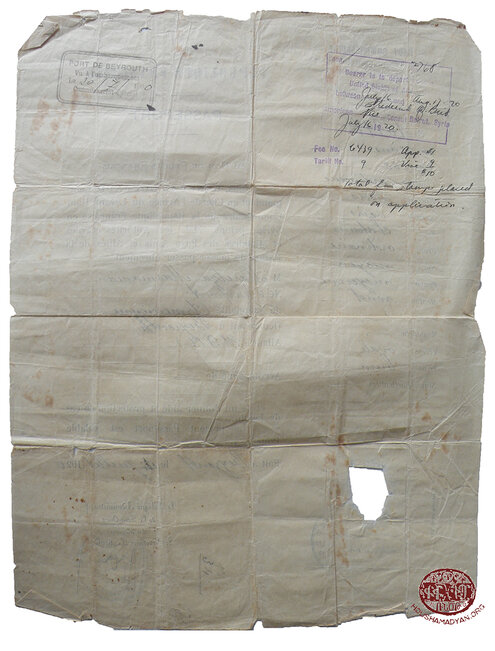
Hovagim Goshgarian was born in the village of Shntil present-day Bahçekapı) on Kharpert’s “Golden Plain.” At the turn of the twentieth century, he traveled to the United States in search of employment, with the intention of returning to his fatherland with his earnings and living a relatively comfortable life there. After working for years as an unskilled laborer in a mine and factories and accumulating some savings, he returned to Shntil, where he married. Two or three years later, he set out for the United States again, leaving his wife and two sons behind in his native village; they were to disappear in the Genocide.
In the United States, Hovagim Goshgarian remarried. His second wife, Maritsa Mazmanian, was a native of Husenig.
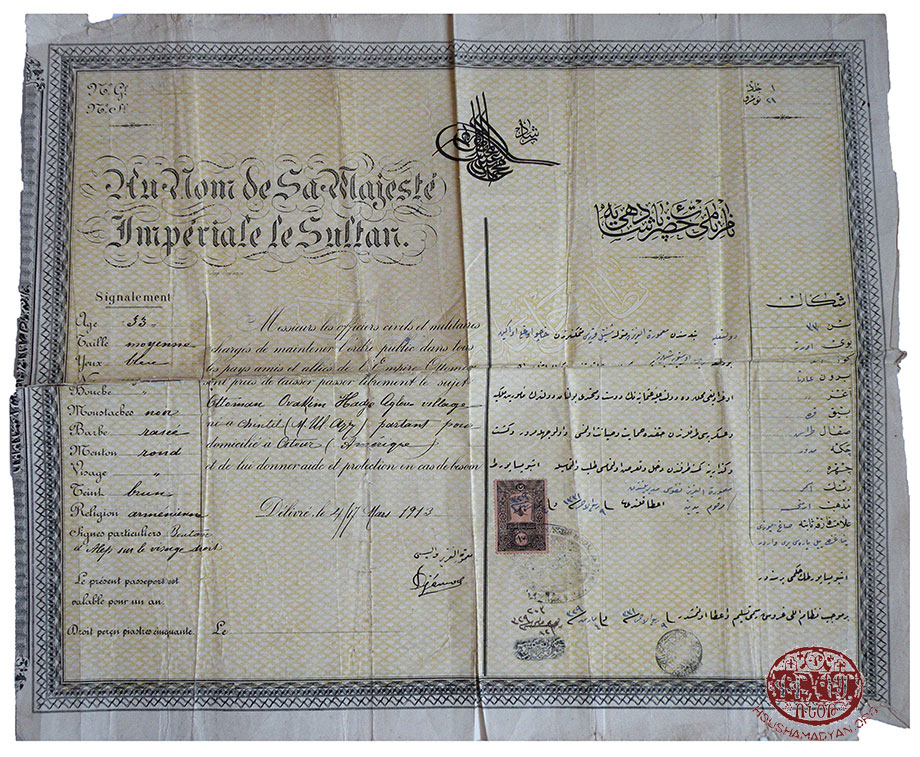
This document is a property deed notarized by an American notary public and officialized by the Ottoman consulate in New York. Very probably, it bears some connection to Hovagim Goshgarian’s real-estate transactions. It is here stated that Krikor Garabedian of the city of Worcester authorizes Garabed Hovhannessian of the village of Shntil (in the Kharpert region) to transfer title to various lots of land to Hovagim Khachadurian. The lots’ boundaries are very precisely defined in the document, which is dated 2 February 1910.
This property deed belonged to Hovagim Goshgarian. Drawn up on 26 November 1909, it was notarized by an American notary public and officialized by the Ottoman consulate in New York.
The deed confirms that Hovagim Goshgarian of the city of Worcester, Massachusetts purchased, for two hundred dollars, a number of tracts of land from Krikor Der Minassian of Milford (a town not far from Worcester).
Hovagim Goshgarian’s Ottoman passport, issued by the Ottoman consulate in New York in November 1910. We know that Hovagim, who was in the United States in 1910, went back to Shntil once. He probably obtained this passport in order to make that return trip. In 1913, he again set out for the U.S. He was thus saved from the Genocide. The story goes that he undertook this second voyage to dodge the Ottoman draft during the Balkan Wars and so avoid being sent to the front with the army. His wife and sons, who remained in Shntil, disappeared without a trace in 1915. According to his passport, Hovagim was twenty-nine years old in 1910.
